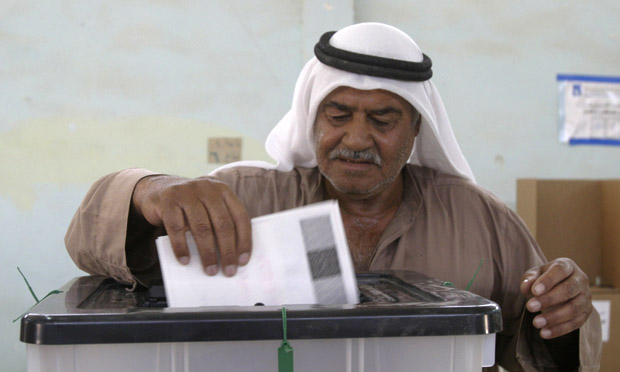From nascent democracies struggling with corruption to the world’s oldest democracies grappling with how to change their creaky systems, the issue of free and fair elections is ever-present around the globe.
In the United States, the challenges of electoral integrity remain salient, even a decade and a half after the infamous 2000 election and the Florida recount debacle, which was decided by the Supreme Court in Bush v. Gore. Following that election, there has been almost constant debate about how the world’s leading and most seasoned democracies are modeling best practices, or not. (In 2014, the Presidential Commission on Election Administration proposed a series of reforms, many of which have not been acted upon.)
What do the data indicate about elections worldwide? What are the differences between older and younger democracies? And finally, are there shared problem areas among developed and developing countries that have relatively low rankings?
The Electoral Integrity Project, supported by the Australian Research Council and the Harvard Kennedy School, among others, has been monitoring and analyzing the voting procedures, outcomes and environments of countries worldwide. One of the project’s latest reports, “The Year in Elections, 2013: The World’s Flawed and Failed Contests,” by Pippa Norris of Harvard and the University of Sydney, and Richard W. Frank and Ferran Martinez i Coma of the University of Sydney, looks at 49 different indicators to analyze 73 parliamentary and presidential contests in 66 countries over the 2012-13 period. The scholars consulted with 855 election experts globally to assess the various indicators. Eleven key stages of elections are identified, including electoral laws, voting boundary changes and the degree that money can distort a fair vote.
The report’s findings include:
- Affluent, post-industrial societies generally score better; high-integrity countries include Norway, Germany, the Netherlands, Iceland and Austria. There is a connection between democracy and “well-educated and highly literate populations, rich networks of civic associations linking citizens and the state, stable states, and effective public sector bureaucracies.” In the research world, this is known as the “Lipset” hypothesis, after a 1959 paper first setting forward the idea.
- Some newer democracies and emerging economies “performed well in electoral integrity, despite having less experience of competitive elections, including countries such as the Republic of Korea, the Czech Republic, Slovenia, Lithuania, Rwanda, Chile, Argentina, and Mongolia.”
- The countries at the greatest risk for failed elections were substantially located in Southeast Asia, in particular Malaysia, Cambodia and Thailand. Further, Eurasian elections in Belarus, Tajikistan, Turkmenistan and Azerbaijan raise concerns, while African states marked by problems include Equatorial Guinea, Togo, Djibouti, the Republic of Congo, Angola and Zimbabwe.
- The United States was not in the high integrity category and ranked only 26 out of the 66 countries analyzed over the period, a ranking similar to that of Mexico, Mongolia and Georgia. The United States was hurt by lower rankings in the strength of electoral laws, voter registration processes (and voter ID laws), campaign finance and, most significantly, the redistricting of voters and changing of boundaries for political reasons, which can compromise meaningful elections.
- Regarding the integrity of “voting district boundaries,” the United States received the second lowest score and ranked 65 of 66. Some of the countries known for poor overall electoral integrity — Venezuela, Iran and Belarus — ranked higher on this measure.
The scholars have updated their work in a 2014 paper published in PS: Political Science & Politics, “Measuring Electoral Integrity around the World: A New Dataset,” where they present more detail on the rigor of their methodology. They also expand the dataset to 95 elections, through June 2014. A noteworthy addition to the top countries is middle-income Costa Rica, now ranked second worldwide in electoral integrity. The scholars emphasize that deeper structural factors demand more attention in terms of producing a legitimate outcome. “Although much scholarship and popular commentary focuses on potential problems occurring on polling day in the voting process and ballot count, such as fraudulent voting or vote counts,” they conclude, “the evidence … shows that campaign finance is by far the most problematic stage in the electoral cycle. Money in politics was a common concern in many developing countries as well as in many affluent societies, including the United States.”
Related research: In a much-discussed 2014 paper published in Perspectives in Politics, Martin Gilens of Princeton and Benjamin I. Page of Northwestern measure how policy issues are decided in the United States and argue that the evidence shows that economic elites increasingly predominate. The data indicate the “nearly total failure of ‘median voter’ and other Majoritarian Electoral Democracy theories.” Further, they write, “When the preferences of economic elites and the stands of organized interest groups are controlled for, the preferences of the average American appear to have only a minuscule, near-zero, statistically non-significant impact upon public policy.”
Several other important institutions also rank societies and their overall degree of political and economic freedom: For example, the Economist Intelligence Unit categorizes states as full democracies (only 15% of all nations), flawed democracies (32.4%), hybrid regimes (21.5%) and authoritarian regimes (31.1%); Democracy Ranking, based in Austria, has its own annual analysis and formula; and Freedom House likewise has its own rankings, and has found a general retreat of political rights and liberties around the world over the past eight years. Other organizations such as Reporters Without Borders and the Committee to Protect Journalists analyze other measures relating to press freedom, while Transparency International monitors corruption and the World Economic Forum ranks economic competitiveness and openness.


Expert Commentary